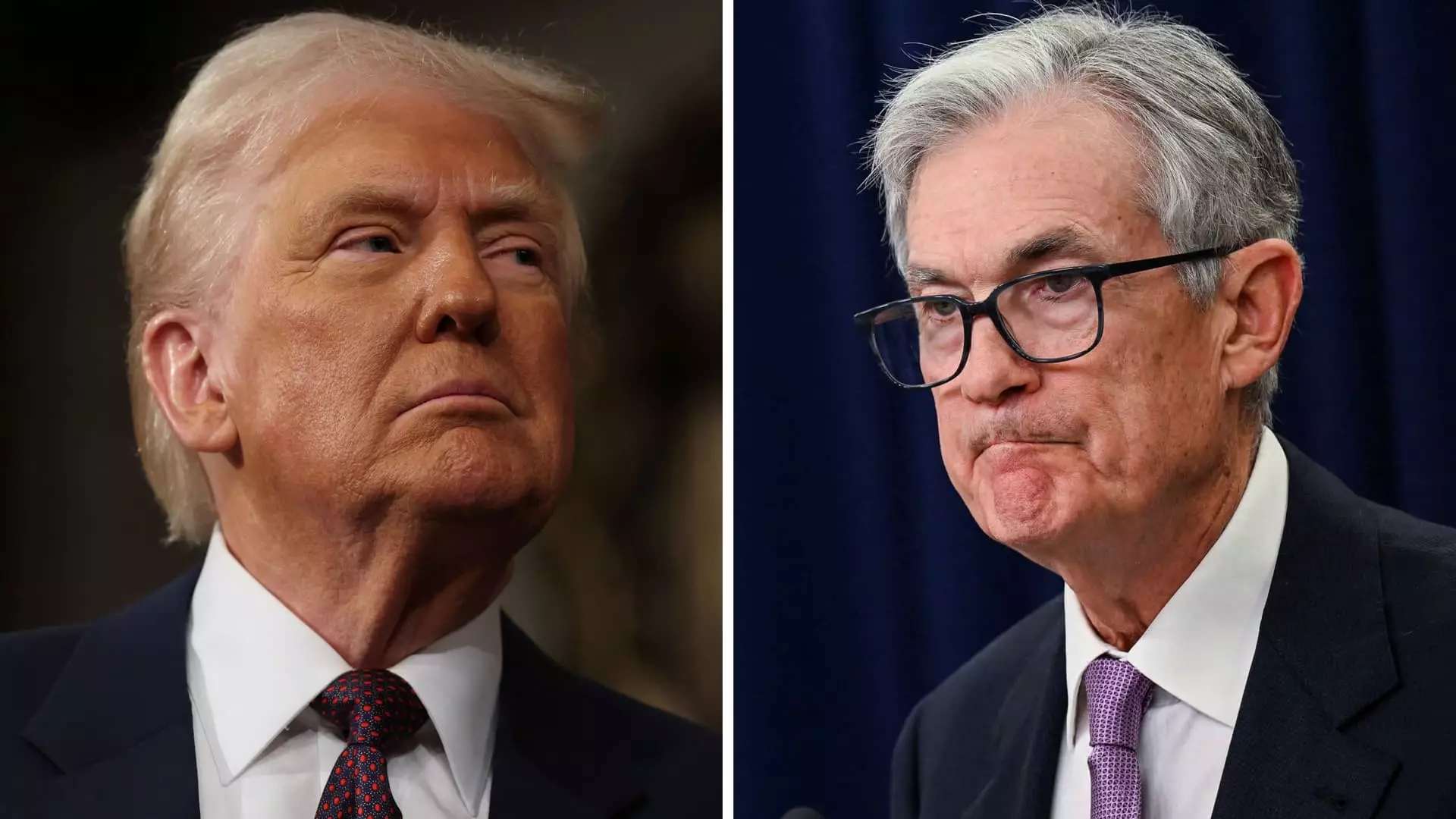In a spectacle reminiscent of a soap opera, the ongoing feud between President Donald Trump and Federal Reserve Chair Jerome Powell is casting shadows over the already tumultuous landscape of American economics. The president has made no bones about his disdain for Powell, believing the Fed Chair’s stance on interest rates is a direct reflection of his own failures as a leader. This constant attack not only undermines the credibility of a critical institution but raises alarms about the long-term ramifications for the U.S. economy, effectively turning a power struggle into a potential economic crisis.
The Fed: An Autonomy at Risk
Trump’s inflammatory rhetoric, including references to the “termination” of Powell, is troubling on multiple fronts. At its core, the independence of the Federal Reserve is a cornerstone for safeguarding the nation’s financial health. By attempting to exert pressure on Powell, Trump threatens this independence, favoring short-term political gains over the long-term stability of American financial systems. The idea that a president could fire the Fed chair not only invites chaos but also sows distrust in markets that rely on the Fed’s ability to navigate economic complexities without political interference.
Equally alarming is the troubling narrative promulgated by members of Trump’s administration, suggesting they are studying legal loopholes to facilitate Powell’s ouster. Such antics can plunge markets into a deep state of panic, as echoed by Democrat Senator Elizabeth Warren. If the President’s whims could dictate the leadership of the Federal Reserve, it would set a dangerous precedent, signaling the death knell for economic prudence.
Interest Rates, Inflation, and Ignorance
The crux of Trump’s grievance with Powell stems from the latter’s insistence on maintaining interest rates despite apparent fluctuations in prices. Trump’s constant refrain that rates should be lowered reflects an appalling misunderstanding of economic fundamentals. Interest rates are not just levers of political manipulation; they are the bedrock upon which the entire economy stands. Lowering them indiscriminately is not an elixir for economic woes, but rather a reckless gamble that could stoke inflation further down the line.
By prioritizing short-term political optics, Trump risks jeopardizing the very economic recovery he claims to champion. Powell’s assertion that tariffs posed by the administration could create inflationary pressure is not an irrational fear; it is a logical conclusion grounded in economic theory. Instead of taking criticism in stride, as a competent leader would, Trump lashes out, drowning out voices of reason with thunderous attacks that aim to divert attention away from his own missteps.
The Illusion of Control
One cannot overlook the irony of a President, eager to point fingers at the Fed, when much of the economic turbulence can be traced back to the policies he champions. Trump’s inability to navigate complex economic systems reflects a broader issue: a lack of understanding that the Federal Reserve operates on principles designed to mitigate crises and promote stability in unpredictable times. By trying to intervene in its workings without a grasp of the intricate balancing act involved, Trump is setting the stage for an economic powder keg.
Additionally, those who argue the Fed should take cues from the White House ignore the realities of the economic landscape. The Fed’s role in maintaining price stability and high employment rates must be insulated from the caprices of political interests. This independence isn’t just a formality; it’s an essential aspect of sound economic governance, shielding the institution from the fickle nature of electoral politics.
Consequences of Discontent
As tensions ramp up, the risks of economic fallout loom ever larger. Trump’s blatant disregard for the expertise and authority that Powell represents not only fosters an environment of instability but could also invite a crisis of confidence that might ripple through financial markets. Uncertainty breeds caution among investors and consumers alike, leading to stagnation that could paralyze economic growth.
Trump may perceive his combative approach as a means to assert control over the economic narrative, but the truth is, he is playing a dangerous game. With every attack on Powell, he pushes the Federal Reserve further into a corner, effectively handcuffing it when it needs to act decisively. The stakes grow with each passing day, underscoring the need for a President who understands the gravity of economic stewardship versus one who resorts to erratic, politically motivated outbursts.
In a time when collaboration and calm decision-making are essential, Trump’s tirades not only erode institutional credibility but also risk plunging the U.S. economy into a quagmire from which it may take years to recover. The path forward should involve respect for the autonomy of American financial institutions, rather than the reckless theater of personal vendettas. The stakes are too high for such foolishness.

